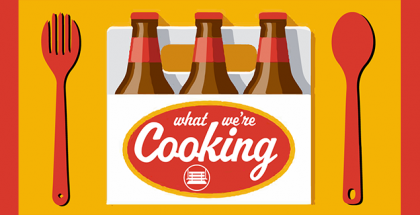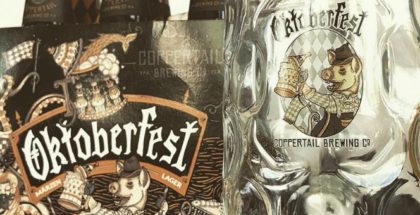Dear Abbey | Oktoberfest Edition
Introducing our new beer advice column, Dear Abbey. This is a chance for readers to send in questions about all things craft beer: brewery etiquette, bottle share protocol, style differences, you name it. No matter the topic, Abbey guarantees that she will always be right and will always be buzzed.
DEAR ABBEY:
My local brewery just posted some Oktoberfest tappings. I’m tired of every holiday being celebrated too early–why can’t they wait until October to celebrate? Doesn’t this ruin the fun by the time next month gets here? Should I tell them how I feel about this or am I the only one who cares about the calendar anymore?
–PATIENT IN PITTSBURGH
DEAR PATIENT:
It’s always your right to your opinion, even when that opinion is completely incorrect.
While I agree that Christmas decorations in August are a shameful offense, Oktoberfest is not actually required to start in October. It’s only required to end in October: the holiday’s timeline works backward, where the last day of merriment is always the first Sunday in October. But there have never been any rules about when the first day could start. Sure, back in 1810, Oktoberfest was housed more properly within October, but in those days, the festival only lasted five days. Are you really advocating for a shorter amount of time to drink holiday beer? If so, shame on you (or, as our German counterparts would say, schäm dich!).
DEAR ABBEY:
My homebrewer friend means well, but his beer is always a little bit…meh. He’s really excited this year to brew an Oktoberfest beer, and he keeps bugging me about whether or not he should make a Märzen or a Festbier. I don’t have the heart to tell him that it’ll all taste the same no matter what he tries to do. Is there any way I can gently tell him to give up the brew and just buy a six-pack of Helles this season?
–UNIMPRESSED IN UTAH
DEAR UNIMPRESSED:
Have you heard the phrase “don’t look a gift horse in the mouth”? Well, replace “gift horse” with “free beer” and you’ve basically answered your own question. Brewing is an artful science, and your friend may still be developing his skills on either end of that spectrum. German beer is actually the perfect opportunity for you to determine where his problem lies: this type of brew is hallmarked for being straightforward and minimally “creative” by today’s standards, but requiring an expert level of attention to detail and precision. If he attempts a Märzen or a Festbier and something tastes off, you may be able to hone your (gentle, constructive) criticism to his attention to ingredients, cleaning, and timing. A Märzen should be amber-colored, intensely bitter, and high ABV, while a Festbier should be a lighter-colored lager with lower alcohol content. If these attempts come out perfect, then it may be an issue of creativity–next time he wants to brew something with unique ingredients, offer some advice on how best to incorporate them. And then drink your free beer, you darn fool.








Submit a Comment